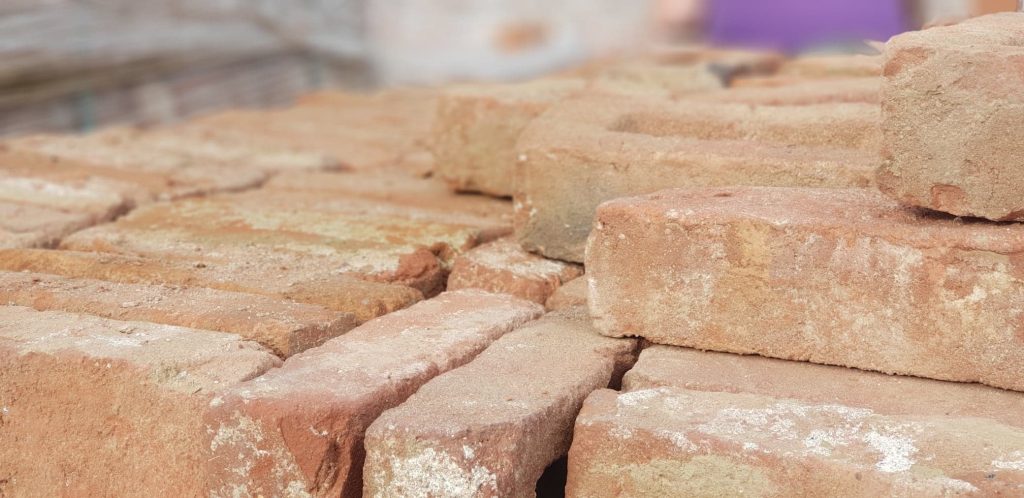The energy needed to make one brick is equivalent to the energy needed to brew two pints of beer. The UK construction industry throws away 2 million bricks a year. That’s a lot of beer’s worth of bricks! In this article we explore the carbon cost of producing new bricks and also compare this to flying to France on a standard passenger plane – you might be shocked at the results!
According to the Brick Sustainability Report, producing 1m2 of bricks emits 22.5kg of carbon emissions as direct fuels and indirect energy consumption, and a further 10.89kg as process emissions. This is based on a standard 2.5kg brick using 60 bricks per sqm. It is equivalent to 0.56 kg/CO2 per each brick that is produced.
According to Eco Passenger, the average carbon cost of a passenger flying from London to Paris is 122kg of emissions. This is the equivalent of producing 217 bricks. An average 3 bed semi-detached house uses 10,000 bricks therefore:

Producing enough bricks to build a semi-detached 3-bedroom house is the equivalent in carbon emissions of one average size passenger flying from London to Paris 46 times on a standard Boeing 737-400!
Watling Reclamation 2020
Or to look at it another way, for every 18 bricks that are produced, a fully grown tree needs to be alive for one year to absorb the amount of carbon dioxide that has been emitted into the atmosphere. That same tree needs to be alive for 555 years to absorb the cost of producing enough bricks for a semi-detached, 3-bedroom home.
Please note that our dodgy maths and differing data sources may mean that this article is best taken with at least a small pinch of salt. Even so, there is no doubt about it that using bricks again and again is far better for the environment than using mass natural resources to keep on producing them new. Buy reclaimed, re-use, recycle and help us keep our wonderful planet a beautiful place to live.
Sign up to our newsletter for more reclamation and sustainability news:
Newsletter
Our data sources:
© 2024 Watling Reclamation | Managed by Propel Marketing
